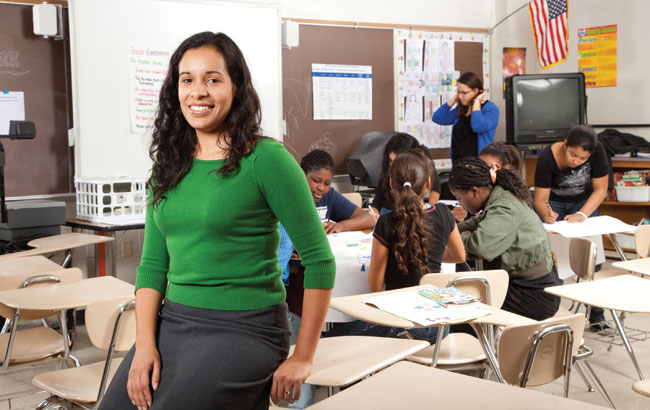
Last year Ana Lopez was rewarded for what she does best—building connections.
In October, Lopez won a 2009 Meyer Foundation Exponent Award for her work as executive director of Community Bridges. The award recognizes strong and effective nonprofit leaders who have the potential for future growth and development. It came with a $100,000 grant for her organization to be used for leadership development. In January, she was honored as a 2009 Washingtonian of the Year by Washingtonian magazine.
At Community Bridges, Lopez directs efforts to provide multicultural empowerment and leadership programs for young, low-income and immigrant girls of color in Silver Spring, Md. She often reflects on the skills and knowledge she learned as a human and organizational development (HOD) major at Peabody College.
“I would say that Peabody has been fundamental to my career in many ways,” she says. “I think it really helped me attain the position I have now.
We are trying to counteract what I call the three main issues of our community—high dropout rates for our population of girls, high gang involvement rates and very, very high teen pregnancy rates.
“The small-group development class is one that I remember often,” she adds. “It highlighted to me both the strengths and challenges of building a team. In my last two jobs, most of my work has been to build infrastructure as well as to build the culture, which are [two] of the core components of what HOD is about. I also liked the class where we looked at the four different leadership models. Now I often gravitate to the leadership model that is more horizontal.”
When she came on board four years ago, Community Bridges was bringing the benefits of its programs to about 75 girls in three schools. Now they are serving 250 girls in 17 schools. The group also works with an additional 200 youth through community conferences.
“Our focus is specifically girls,” Lopez says. “We are trying to take a prevention approach in helping them become exceptional students, positive leaders and healthy young women. We are trying to counteract what I call the three main issues of our community—high dropout rates for our population of girls, high gang involvement rates and very, very high teen pregnancy rates.”
The community in which she works is very diverse with a high immigrant population. She can relate to these girls as a native of Silver Spring who moved to her parents’ native Puerto Rico for middle school and most of her high school years. The family then immigrated back to the U.S.
An honor student, she was invited to a Hispanic student recruitment weekend at Vanderbilt while considering which college to attend. “That was a deciding point for me, and I definitely don’t regret my decision in any way,” she says.